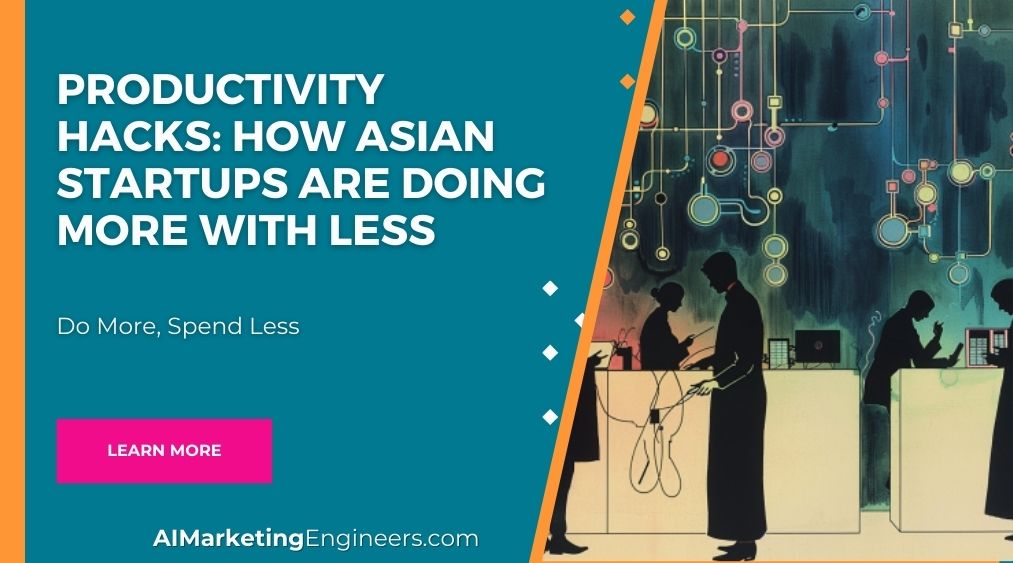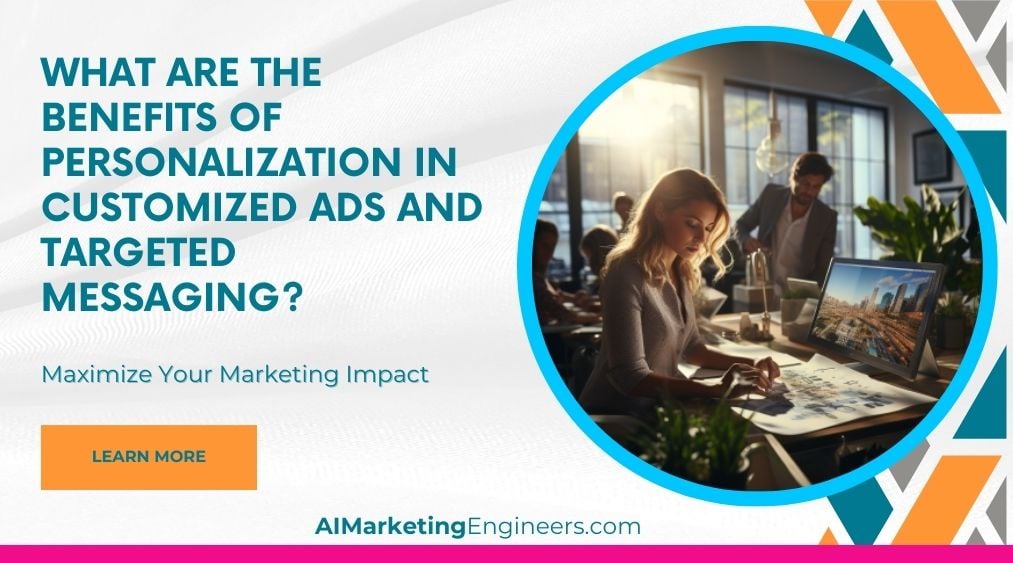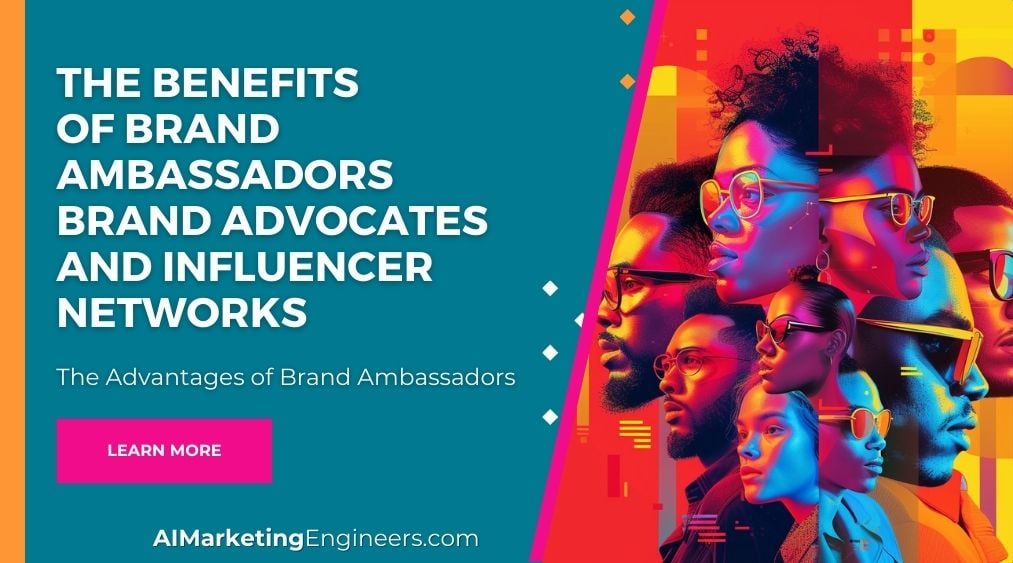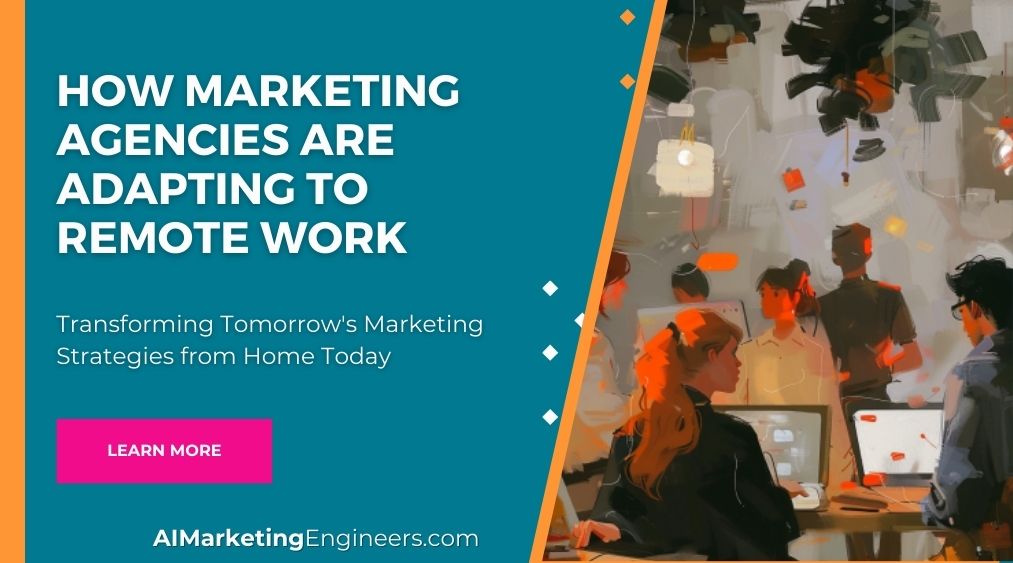Key Takeaways
✅ Definition and Functionality: Discover the impact of Pay-Per-Click (PPC) advertising, a model where businesses pay for each ad click, propelling your website's traffic beyond organic reach. Understanding PPC’s role in today’s digital landscape is paramount, with 64.6% of people clicking on Google Ads when they are looking to buy an item online.
✅ Key Components: Grasp the essential elements for successful PPC campaigns. Crafting memorable ad copy and compelling visuals isn’t just creative—it’s strategic. Moreover, for an effective PPC campaign, ad targeting and landing page optimization are key, as campaigns that send users to dedicated landing pages see an average conversion rate increase at an astounding 50%.
✅ Budgeting and Campaign Mainstay: Learn to manage your PPC spends wisely. Selecting the right campaign and budget can be a make-or-break decision for your online advertising strategy. With cost per click increasing by 40% since 2012, efficient budget allocation and campaign oversight is more crucial than ever.

Introduction
Ever wondered how some businesses seem to have their ad right at the top of your Google search? Welcome to the world of Pay-Per-Click (PPC) advertising, a golden ticket to prominent visibility for your brand. When it comes to online marketing, PPC can be the jetpack propelling your business to new heights. But what exactly is it, and more importantly, how can it work for you?
PPC is not just about getting your ad out there—it's about getting it in front of the right eyes. With Google processing over 5.6 billion searches per day, the potential reach of a well-crafted PPC campaign is monumental. By tapping into this guide, you’re about to unlock innovative perspectives, learn modern trends, and unearth solutions that could maximize your return on ad spend (ROAS) and overall investment (ROI).
Top Statistics
| Statistic | Insight |
|---|---|
| Businesses earn an average of $8 for every $1.60 spent on Google Ads. | This impressive ROI is a compelling reason for businesses to invest in PPC campaigns. |
| 65% of clicks on commercial keywords are sponsored results. | Shows the significant impact PPC ads have on customer search behavior and their ability to attract clicks. |
| Search ads increase brand awareness by as much as 80%. | Brand visibility is highly scalable through the use of targeted PPC ads, making it advantageous for brand recognition strategies. |
| $190.5 billion is the projected amount companies will spend on search advertising globally in 2024. | Global trends in advertising spend point towards increasing confidence in the effectiveness of PPC as a marketing channel. |
| PPC visitors are 50% more likely to purchase something than organic visitors. | This statistic highlights the high conversion potential of traffic driven by PPC campaigns versus non-paid channels. |
Understanding Pay-Per-Click (PPC) Advertising
PPC, short for Pay-Per-Click, is a straightforward concept in the world of digital marketing, yet it presents a complex array of strategies. Businesses harness this model to buy visits to their sites, rather than attempting to earn those visits organically. When someone clicks on a banner, search result ad, or video, the company pays a small fee, which ideally is dwarfed by the profit from the click; a customer may make a purchase, sign up, or engage another way that benefits the business. PPC offers immediate visibility, which is crucial for new product launches or promotions. Additionally, PPC ads can drive traffic to specific landing pages, increasing the chances of conversions. This method provides a quick way to test market responses and refine marketing strategies accordingly.
The Mechanism Behind PPC
So, how exactly does PPC work? At the heart of PPC are keywords. Companies select keywords relevant to their business, aiming for ones their customers frequently use when searching for products or services. A dual focus reigns supreme here: crafting a budget that determines how often your ads show up, and how much you are willing to pay per click. Essentially, it's an auction for digital real estate. The winners of this auction are chosen not just by bid amount, but also by ad quality, relevance, and other factors, ensuring that not only the highest bidder always wins. Quality Score, a crucial factor, influences the cost and effectiveness of PPC ads. Effective keyword research and selection can significantly lower costs and improve ad performance. Continuous monitoring and adjustment of bids and keywords help maintain optimal performance.
Key Elements of PPC Campaigns
Running a successful PPC campaign hinges on a few crucial elements. Keywords are just the start; targeting the right audience is equally critical. Who is most likely to buy your product? Where do they live? What interests do they have? Answering these questions helps in aligning your ad copy and landing pages with the audience's needs, making your ad spend more efficient. Furthermore, the advertisement text must entice users to click, and once they've taken that step, landing pages must match the promise of the ad to convert visitors into customers. Effective audience segmentation can lead to higher conversion rates. Creating compelling ad copy that resonates with your target audience is essential. Regularly updating and optimizing landing pages based on user feedback and behavior enhances campaign success.
Benefits of Using PPC
One of the core benefits of PPC is the ability to measure ROI—you'll know exactly what you're getting for your advertising dollar. But beyond that, there's the power of targeted advertising. You can pinpoint your ads to specific types of users, all the way down to their search habits and their favorite websites. Additionally, there's the flexibility of PPC; campaigns can be tweaked and optimized as they run, allowing for adjustments based on real-time feedback. PPC also provides fast results, enabling quick assessment and adjustment of strategies. The ability to target specific demographics and locations enhances the efficiency of ad spend. Using PPC can complement other marketing efforts, providing a holistic approach to digital marketing.
Important Metrics in PPC
PPC isn't just about setting up ads and hoping for the best. It's a numbers game. Impressions indicate the visibility of your ads, while clicks measure the direct interaction with them. From there, you need to understand CTR and conversion rate—how many people who see your ads actually click on them, and of those, how many take the action you desire. The final puzzle piece is understanding your cost-per-conversion: Are you spending too much to acquire a new customer or lead? Monitoring these metrics helps in identifying areas for improvement. Regularly analyzing performance data ensures that campaigns remain effective and cost-efficient. Utilizing advanced analytics tools can provide deeper insights into user behavior and campaign performance.
Mastering PPC Campaigns
A successful PPC campaign doesn't happen by chance. It requires careful planning and continuous optimization. This could mean revising keywords, refining ad copy, or reevaluating the user experience on landing pages. Regular monitoring is essential, making adjustments when necessary—not to mention the strategic use of negative keywords to prevent unwarranted ad spending. Realism is key when it comes to budgets and bidding; unrealistic expectations can quickly deplete your advertising funds without delivering returns. Effective PPC management involves ongoing testing and experimentation. Leveraging A/B testing can help identify the most effective ad elements. Consistently reviewing and adjusting bids ensures optimal use of advertising budgets.
Avoiding Common PPC Mistakes
Avoid common mistakes in PPC to maintain a healthy return on your investment. Lackluster keyword research, uninspiring ad copy, and insufficient budgeting can all doom a campaign before it begins. Additionally, not keeping a close eye on your campaign's performance might lead to missed opportunities for optimization. And don't forget the landing pages, as a disjointed user experience can torpedo conversion rates no matter how engaging your ad might be. Neglecting mobile optimization can result in lost conversions. Overlooking competitor analysis can lead to missed opportunities for improvement. Regular audits of PPC campaigns can help identify and rectify potential issues early on.
Tools for Effective PPC Management
A variety of tools are at your disposal to manage PPC campaigns effectively. Platforms like Google Ads and Microsoft Ads are industry standards, providing vast networks for ad placements. But managing campaigns doesn't stop there—utilize PPC reporting software to gain insights into campaign performance and leverage templates for campaign management to stay organized and for crafting proposals that clearly outline the strategy, costs, and expected outcomes for stakeholders. Advanced keyword research tools can help identify profitable keywords. Analytics platforms can provide detailed reports and insights for performance tracking. Automation tools can streamline campaign management tasks, saving time and improving efficiency.
AI Marketing Engineers Recommendation
Recommendation 1: Invest in Keyword Research Tools for Enhanced PPC Performance: To ensure your Pay-Per-Click (PPC) campaigns are not shooting in the dark, invest in reliable keyword research tools. According to a 2023 Statista report, 63% of people have clicked on a Google ad. This means that choosing the right keywords is essential to being part of those clicks. Tools like Google Keyword Planner or SEMrush can provide insights into search volume, competition and trends, helping you bid strategically on terms that are most likely to attract your target audience and convert.
Recommendation 2: Embrace AI-Driven Optimization for Real-Time Bidding Adjustments: With the always-on nature of digital marketing, staying ahead of the competition means adapting quickly. Artificial intelligence (AI) in the field of PPC is becoming increasingly important. By using AI-driven platforms, businesses can automate bid adjustments in real-time, reacting to market changes faster than humanly possible. This could result in a cost-per-acquisition reduction by as much as 60%, according to recent data from WordStream.
Recommendation 3: Leverage Responsive Search Ads for Greater Personalization: The power of personalization is no secret in the world of marketing, and with PPC, it's no different. Google's Responsive Search Ads (RSAs) allow advertisers to input multiple headlines and descriptions, which Google then tests and optimizes to find the best performing combinations. This is critical, considering that RSAs can increase conversions by up to 10%, as reported by Search Engine Land. This automation and optimization means your ads resonate better with your audience, leading to higher engagement and conversion rates.
Relevant Links
- Master the Art of Pay-Per-Click Campaigns
- Growing Your Brand with Performance Marketing
- Becoming a PPC Maestro in China
- Harnessing Analytics for Market Understanding
Conclusion
In the dynamic arena of digital marketing, Pay-Per-Click (PPC) stands out as a tool that can swiftly funnel traffic to your website, with the potential for immediate results in terms of leads and sales. Its mechanism is simple yet robust—every time a user clicks on your ad, you as the advertiser pay a small fee. This model's strength lies not just in its immediate visibility but also in the breadth of control it offers over the campaign's performance.
The essence of PPC hinges on selecting the right keywords, crafting targeted ad copy, and steering visitors to high-quality landing pages—all to ensure that every click has a strong chance of converting to a valuable customer action. With the capability to track clicks, impressions, and conversions, businesses can gain insights into their return on investment with precision that traditional advertising rarely matches.
However, it’s not just about setting up a campaign and watching it unfold. The real mastery in PPC comes from ongoing optimization and meticulous attention to detail—whether it’s refining your keywords, tweaking ad copy, or perfecting your landing pages. Employing best practices is crucial to sidestep the common pitfalls like poor keyword choices and inadequate budgeting that can result in wasted ad spend.
Tools like Google Ads and Microsoft Ads offer robust platforms to launch and manage your PPC efforts, while analytics and management templates aid in tracking and refining campaigns. Given that the digital landscape is ever-evolving, continuous learning and adjustment are vital for staying ahead. As you look to implement or enhance your own PPC strategies, embrace its potential for targeted advertising and flexibility, use the metrics to guide your decisions, and remember the importance of a tight, well-monitored campaign. The question now is, how will you leverage PPC to transform your digital marketing efforts and take your online presence to the next level?
FAQs
Question 1: What is PPC marketing?
Answer: PPC marketing is like being able to place a tiny billboard on the digital highway. Every time someone shows interest and clicks on your ad, you pay a small fee. It's all about directing traffic toward your website in a pay-to-play fashion.
Question 2: How does PPC work?
Answer: Imagine an auction, but instead of antique vases, we're bidding on ad placements. The more you're willing to pay for a click, the better your ad's chances of being seen. But the beauty is, you only pay when someone actually clicks on your ad.
Question 3: What is the actual cost per click (CPC)?
Answer: The cost per click is like a secret bid behind the curtain. Based on your ad's rank and quality score, you might end up paying less than your max bid. The auction sets the price, leaving you with the bill (hopefully a small one) when someone clicks.
Question 4: Why is PPC an essential part of online advertising?
Answer: Think of PPC as the express lane. It's all about getting you to your destination—visibility—faster than traditional methods. It's a must for targeting the right audience quickly and spotlighting niche products.
Question 5: What is Campaign Management?
Answer: Campaign management is the captain of the PPC ship, steering everything from ad creation to launching, and making sure we're sailing towards the best return on investment (ROI).
Question 6: How do you structure a PPC account?
Answer: It's like sorting your Lego blocks. You want everything — campaigns, ad groups, keywords — organized in a way that makes sense and makes your life easier while optimizing ad performance.
Question 7: How do you research and select keywords for a PPC campaign?
Answer: This is the treasure hunt part where you're looking for keyword gold—those search terms that your potential customers are typing into Google. With tools like Google Keyword Planner, this becomes less of a wild goose chase and more of a strategic hunt.
Question 8: How do you measure the success of a PPC campaign?
Answer: Success is all in the numbers. Did we convert browsers into buyers? Did we get a good bang for our buck? We use metrics like conversion rate and return on ad spend (ROAS) to calculate our victory dance.
Question 9: What are the key elements of a successful PPC ad?
Answer: A winning PPC ad is like a firm handshake—it gets your attention. It's personal, prods you to act, and uses data to connect with you like an old friend.
Question 10: How do you use negative keywords in a PPC campaign?
Answer: Negative keywords are the bouncers at the club, keeping out the search terms that just don't fit. This way, your ad only shows up for the searchers who are likely to click and convert.
Academic References
- Olbrich, R., Schultz, C. D., & Bormann, J. R. (2020). Pay-per-click advertising: A literature review. Management Review Quarterly, 70, 1-34. This extensive literature review offers a broad overview of Pay-per-click (PPC) advertising. It encapsulates various models and strategies in PPC, its integration within marketing campaigns, and the impact of technological advancements.
- Jansen, B. J., & Mullen, T. (2008). Sponsored search: An overview of the concept, history, and technology. International Journal of Electronic Business, 6(2), 114-131. This paper provides a historical context and the technological underpinning of sponsored search, a form of PPC advertising. It examines the evolution of search engine marketing and how PPC fits into the broader landscape of online advertising.
- Stokes, R. (2020). eMarketing: The essential guide to marketing in a digital world. Red & Yellow Creative School of Business. The chapter on PPC advertising in this comprehensive digital marketing textbook explains the fundamentals of PPC, how campaigns are structured, and the mechanics of how bidding works in digital ad platforms.











